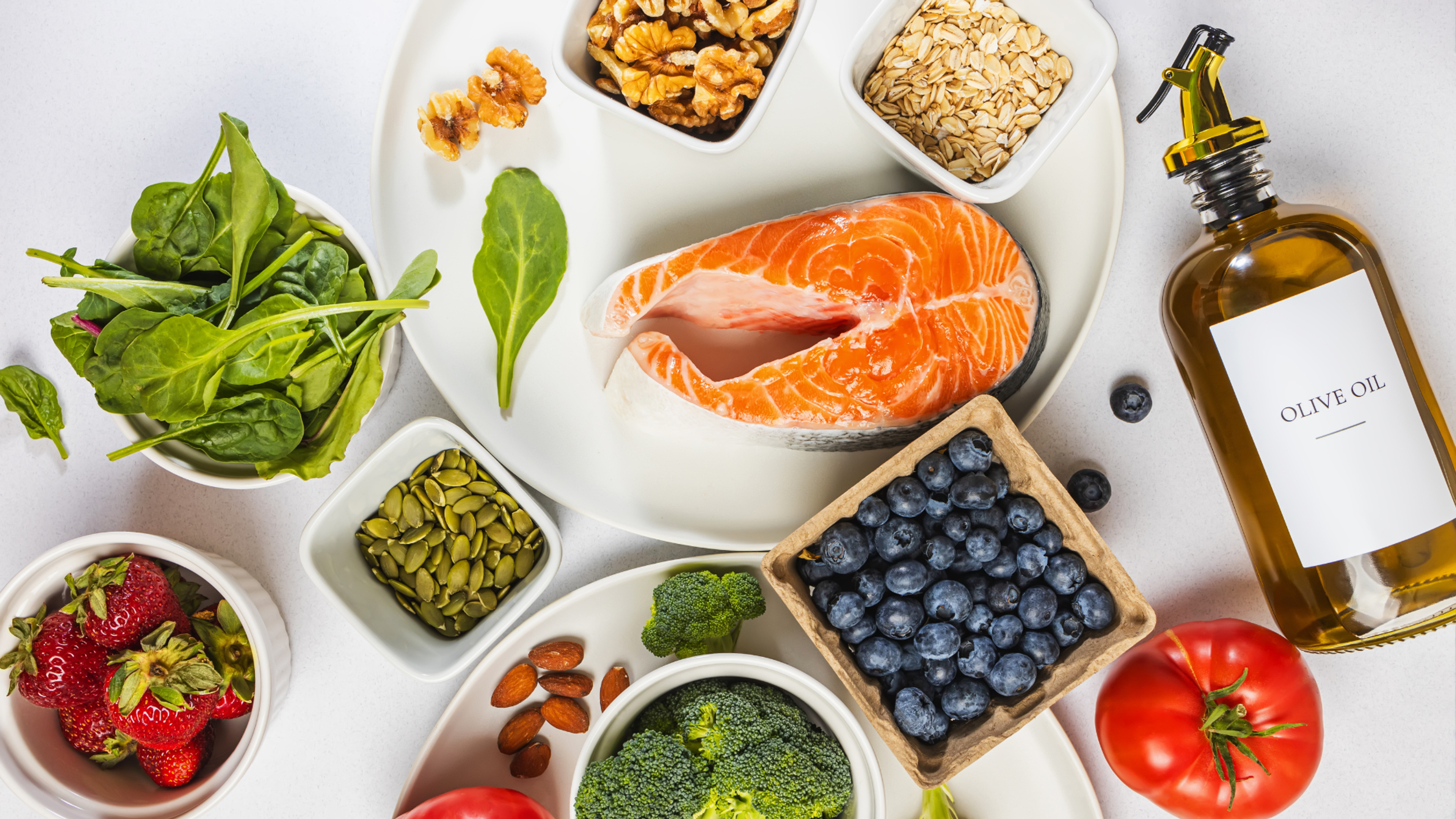How Nutrition Shapes Brain Health: The Power of Good Fats and Smarter Food Choices

Your brain depends on more than just sleep and stimulation to function well, it also relies heavily on what you eat. According to neuro-ophthalmologist Dr. Christine Greer, nutrition plays a foundational role in maintaining brain health because food provides the raw materials your brain uses to build and repair itself.
Why Food Matters to Your Brain
“Nutrition is exceptionally important, and that’s because what you eat and the components of your food are the building blocks to your brain cells,” says Dr. Greer. “All the time, your cells are turning over and you’re using components of your food to rebuild new ones.”
One of the most vital components of brain cells is a fatty layer that surrounds each neuron. This layer, also known as the myelin sheath, helps electrical signals travel quickly and efficiently through the brain. “The conduction of the brain cells and the speed of that signal comes from this fatty covering,” she explains.
The quality of that fatty covering depends largely on the types of fats you consume.
Good Fats vs. Bad Fats
Not all fats are created equal. Some help your brain thrive, while others can damage your blood vessels and slow blood flow to the brain.
Good fats—those that support brain cell membranes and reduce inflammation—include:
- Omega-3 fatty acids
- Polyunsaturated fats from sources like fish
- Nuts and seeds
- Healthy oils, such as olive oil
“These are the ones that our body can use to build cell membranes,” says Dr. Greer.
On the other hand, bad fats can lead to high cholesterol and plaque buildup in blood vessels, which impairs circulation to the brain.
Harmful fats include:
- Saturated fats from low-quality beef and pork
- Trans fats found in processed foods, shortening, margarine-based products, and commercial baked goods
- Processed meats like bacon and sausage
“These things can be detrimental to your health and inflammatory,” she explains. “They can have a negative impact on the blood flow in the body, both how the heart pumps and how the heart pumps blood to your brain.”
The Link Between Diet and Brain Imaging
As a neuro-ophthalmologist, Dr. Greer frequently orders brain MRIs, and she says the effects of poor nutrition often show up in imaging.
“By seeing your brain MRI, I can often tell what your diet is,” she says. “When you have a poor diet that’s high in saturated fats and you have a lot of blockages of the blood flow to your brain, I can see that as white patches on your brain.”
Those white patches represent areas of scarring where brain cells haven’t received adequate blood flow. Over time, this damage can accumulate and affect memory, cognition, and even increase the risk of dementia.
The Takeaway
Your brain is built from what you eat. Choosing the right fats and avoiding harmful ones can help preserve brain function, support mental clarity, and reduce your risk of vascular damage that leads to cognitive decline.
Small, consistent changes—like swapping out processed snacks for nuts or cooking with olive oil instead of margarine—can make a lasting impact on the health of your brain. As Dr. Greer reminds us, “These are all things to keep in mind when you're planning your food and you're planning your week.”
To learn more about the connection between nutrition and brain health, watch our full conversation with Dr. Christine Greer in the video above.
By Alicia J. Barber, PhD
Disclaimer
The Video and Written Educational Content included on this site is not intended to be a substitute for professional medical advice, diagnosis, or treatment. Always seek the advice of your physician or other qualified health provider with any questions you may have regarding a medical condition. Never disregard professional medical advice or delay in seeking it because of something you have read or seen on the Site.
The information contained in the Educational Content posted represents the views and opinions of the individual in the recording and does not necessarily represent the views or opinions of IND. The mere appearance of Educational Content on the Site does not constitute an endorsement by IND or its affiliates of such Content.
The Educational Content has been made available for informational and educational purposes only. IND does not make any representation or warranties with respect to the accuracy, applicability, fitness, or completeness of the Content. IND does not warrant the performance, effectiveness or applicability of any sites listed or linked to in any Content. IND hereby disclaims any and all liability to any party for any direct, indirect, implied, punitive, special, incidental or other consequential damages arising directly or indirectly from any use of the Content, which is provided as is, and without warranties.